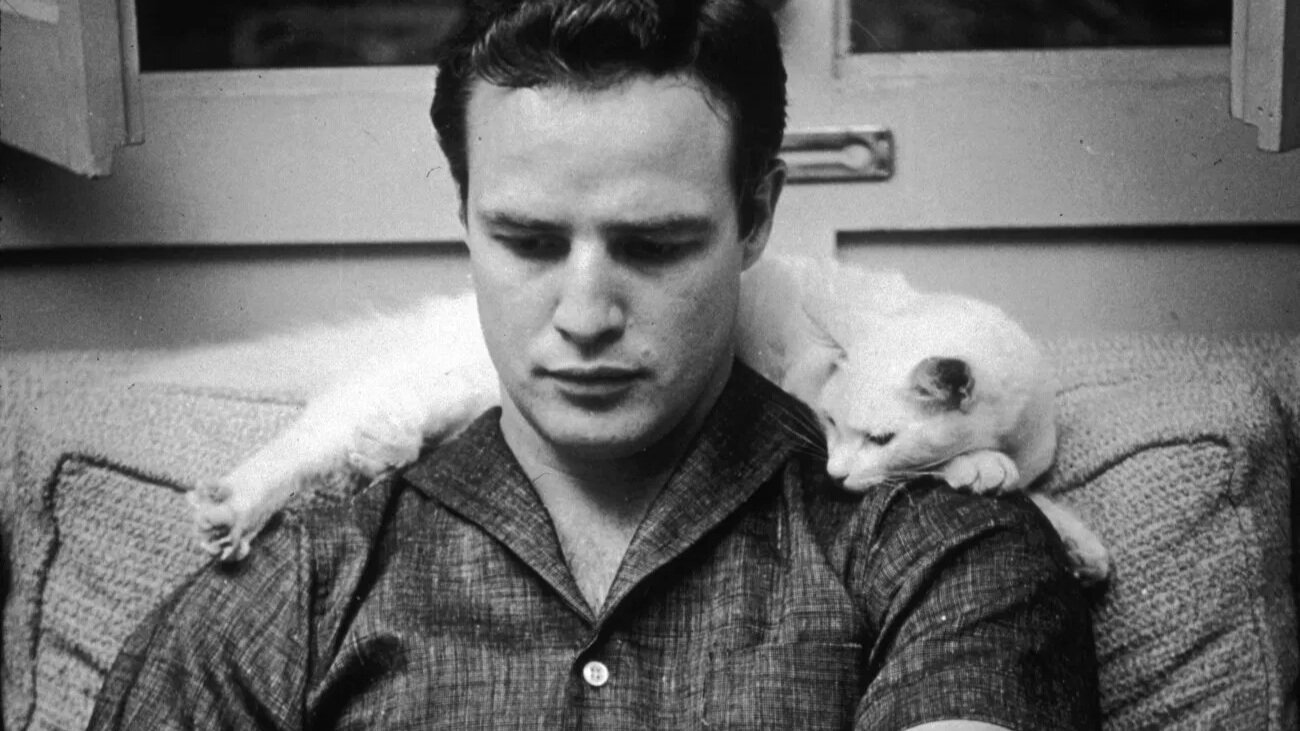Listen to Me Marlon
As a documentary about an actor, this feature has the advantage of a unique selling point.
Method in his madness
Given the upsurge in the number of documentaries now regularly released into cinemas, it is hardly surprising that 2015 saw three films of this kind which featured the lives of past giants of cinema. Altman appeared in April and Steve McQueen The Man and Le Mans followed in November. Between times came this piece about Marlon Brando directed by Stevan Riley but it is significantly different because central to it is the voice of Brando himself taken from a remarkable series of audiotapes recorded by the actor. These detailed comments were not addressed to others but represented a kind of self-therapy with the actor confronting himself about his life, his behaviour and the conflicts that he faced. Heard now in this cinematic context blended with old interview footage, home movies and newsreels, the effect is to transform the form so that instead of being a biography this is virtually an autobiography.
Armed with all this invaluable material, Riley had to edit it and put it together meaningfully rather than to seek much new footage, thus making Listen to me Marlon somewhat akin to Asif Kapadia’s outstanding films Senna and Amy. He does add a touch of drama by referring very early on to a shooting in Brando’s house not to be clarified until much later on, since he then turns to the tapes in such a way that Brando presents his own life story in chronological order starting with a truthful account of an unhappy childhood (at odds with what he would say later when interviewed). Footage of Stella Adler follows and underlines the key influence she was to be on his acting style once he had arrived in New York.
As the career in films develops we have some appropriate clips including ones from the sometimes overlooked Viva Zapata! For whatever reason (unavailability of extracts?) some important titles are passed over (the self-directed One-Eyed Jacks, the adventurous Queimada! and his late, distinguished appearance in A Dry White Season, for example) but by way of compensation we do get Brando’s thoughts on acting and on contrasts between performing on screen and stage. Furthermore, he is candid about becoming jaded and making films for the money to support a period of nine months or so away from the camera during any one year. He nominates Candy as his worst film ever, but is also ready to counter criticisms made against him (he suggests that his rewriting of his role saved Apocalypse Now).
But this film is most remarkable for the way in which Brando’s honesty on the tapes about his private life enhances our understanding of a man who, having achieved great success, went on to experience tragedy and guilt. Thus we come back to that shooting and to a scene that is touchingly raw as he gives evidence in court and we also discover just how considered and heartfelt his stance was when he refused an Oscar in protest against Hollywood’s portrayal of Indians. This is a film that gives us greater insights than heretofore into a truly remarkable actor.
MANSEL STIMPSON
Featuring the voice of Marlon Brando.
Dir and Ed Stevan Riley, Pro John Battsek, R.J. Cutler and George Chignell, Written by Riley and Peter Ettedgui, Ph Ole Bratt-Birkeland, Pro Des Kristian Milsted.
Showtime/a Passion Pictures production/Universal Pictures Home Entertainment Content Group- Universal Pictures International UK & Eire.
103 mins. UK/USA. 2015. Rel: 23 October 2015. Cert. 15.


